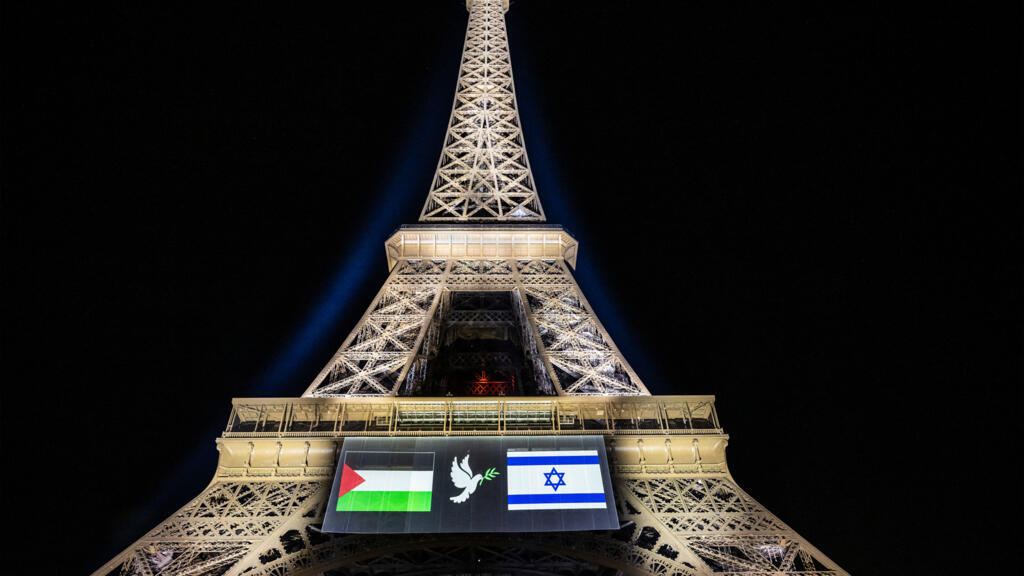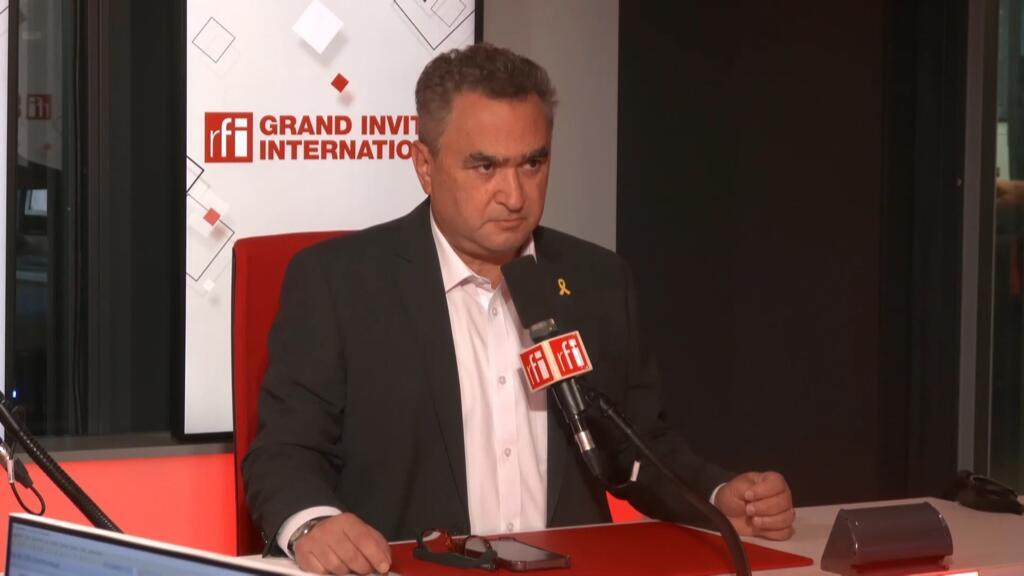
Paris – Joshua Zarka, Israel's ambassador to France, was RFI's guest on Monday, 22 September – the day that France officially recognised the Palestinian state at the United Nations General Assembly, which Zarka called a 'historic mistake'.
France's President Emmanuel Macron officially recognised a Palestinian state at the United Nations on Monday, following Australia, the United Kingdom, Canada and Portugal on Sunday.
Monaco, Belgium, Andorra, Malta and Luxembourg followed suit from the General Assembly podium, bringing the total number of recognitions to three-quarters of UN membership.
Spain, Ireland and Norway had already recognised Palestine as a state in May, and Sweden did so in 2014. Germany, Italy and Japan, while critical of Israel's actions in Gaza, are among the countries that have declined to do so.
Israeli Prime Minister Benjamin Netanyahu has denounced the push for recognition as "absurd", claiming it would endanger Israel's existence. He has vowed not to allow a Palestinian state and far-right members of his cabinet have threatened to annex the West Bank to make statehood impossible.
Macron says embassy in Palestine will open only after release of hostages
Zarka, Israel's ambassador to France since last year, told RFI on Monday that these recognitions were "empty words, words that lead nowhere".
"On a personal level, it's a feeling of not having succeeded in convincing the French authorities of the extent to which this decision and this statement not only harmed the security of my country, but endangered it," he said.
"What's more, instead of helping to create an environment of peace, it did exactly the opposite."
'We must first change the atmosphere'
RFI: Don't you think that the recognition of a state of Palestine, and therefore the existence of two states, is a solution?
Zarka: "What I'm saying very clearly is that in order to create an environment of peace, we must first fundamentally change the atmosphere that exists between us and the Palestinians.
"As you know, Israel proposed the creation of a Palestinian state on four different occasions after the Oslo agreements. On all four occasions, the Palestinians rejected these agreements. It was not us who rejected these agreements."
Franco-Israelis hit out at Macron's recognition of Palestinian state
You talk about changing the atmosphere. You have read the letter that Mahmoud Abbas, the President of the Palestinian Authority, sent to President Macron. First of all, he made a commitment, condemning the attacks of 7 October, committing himself to new governance of the Palestinian Authority and also assuring him that Hamas would no longer have a political role.
Zarka: "It's words that [are not worth] the paper they were written on. You know, the President of the Palestinian Authority was last elected in 2006. Since then, he has not agreed to hold elections. And today he has the support of not even 15 percent of his population. So it's clear that he represents nothing."

'No pressure on Hamas'
Turning to the issue of the Israeli hostages still being held by Hamas, Zarka said: "Our hostages are still in the hands of Hamas. Yesterday and the day before, Hamas presented photos of the 48 hostages and said 'we still have these human shields, we are using them as shields until the last moment'. It's an inhuman organisation that still has our hostages and continues to use the Palestinian population."
Recognising a Palestinian state does not mean recognising a Hamas state. These countries are saying that they condemn the attacks of 7 October, that Hamas must not be part of the political authorities. If we are to believe no one's words, how are we to move forward?
Zarka: "The first thing to do is to dismantle Hamas. Because it's not by asking Hamas nicely, please, that they'll do it."
Do you think the international pressure on Hamas is too weak?
Zarka: "There is no international pressure on Hamas. The international pressure today is on Israel and that's all."
Zarka added that Israel feels "isolated' and blamed this on "the fact that the images we see coming from the Middle East interfere with bourgeois parties in Parisian salons".
"Sixty thousand people killed in Gaza can't just be a nuisance at parties?"
Zarka: "Half of them were armed terrorists."
"You think that public opinion and governments have somehow been taken hostage in this spiral of emotion?"
Zarka: "Manipulated by Hamas and manipulated by those who have financed them, such as Qatar and the Iranians."
"And the Israeli government bears no responsibility for this headlong rush to war?"
Zarka: "We have done and will do everything in our power to free our hostages. And if that means continuing the war, we'll continue the war. You know, these are people who have been kidnapped from their homes. They were asleep. These are people who were taken from their beds. This could end immediately if Hamas releases our hostages."
Defiant French mayors keep Palestinian flags flying despite court rulings
'French people are great friends of Israel'
"What does the Israeli government intend to do in response to this wave of recognition of Palestine?"
Zarka: "This is a big question. It is a question that will be decided by the Israeli government and by the prime minister. Yesterday, the prime minister announced to his ministers that this kind of decision would only be taken after his visit to Washington and that he would coordinate this with the president of the United States."
Does this mean that he needs the green light from the Americans to do anything, or that it's the American president who decides?
Zarka: "No, no, it means that he wants to coordinate this kind of thing with our friend and ally, the United States."
Your last ally?
Citing a recent IFOP poll commissioned by the Council Representing Jewish Institutions in France (CRIF), in which 71 percent of respondents said any recognition of the Palestinian state should not take place before the release of the Israeli hostages, Zarka said: "He's not our last friend, nor our last ally, not at all. You know, 70 percent of French people are opposed to the decision taken by the government. The French people are great friends of Israel. I have no doubt about that."
Is a total annexation of the West Bank envisaged or not?
Zarka: "I'd be surprised if that's the decision that's ultimately taken by the Israeli government. But, again, it's a decision that will be taken at the highest level."
You have no information on this subject? You cannot tell us this morning that the West Bank will not be annexed?
Zarka: "We can't say that it will be annexed. I can't say that it won't be annexed. I can say that it is one of the requests that has been made by part of the coalition. I can say that personally, it [would] surprise me."
But you can say what the Israeli prime minister means when he says there will never be a Palestinian state?
Zarka: "It means that it is the position of the prime minister who says very clearly that his government will never accept the creation of a Palestinian state."
So there is no two-state solution with this government?
Zarka: "I choose my words very clearly and I am very careful about what I choose. I said the government, Mr Netanyahu, has made it very clear that his government will never accept the creation of a Palestinian state."
There is also talk of reprisals for countries that recognise [Palestine], but what are the consequences?
Zarka: "I don't know. Once again, these are things that will be decided. These are decisions that will be taken by the Israeli government, by the prime minister and the minister of foreign affairs."
For Zarka, "the weapon of recognition is something you only use once, and that's it. After that, there's no leverage".
This interview has been edited for clarity. Listen to the original interview in French here.







